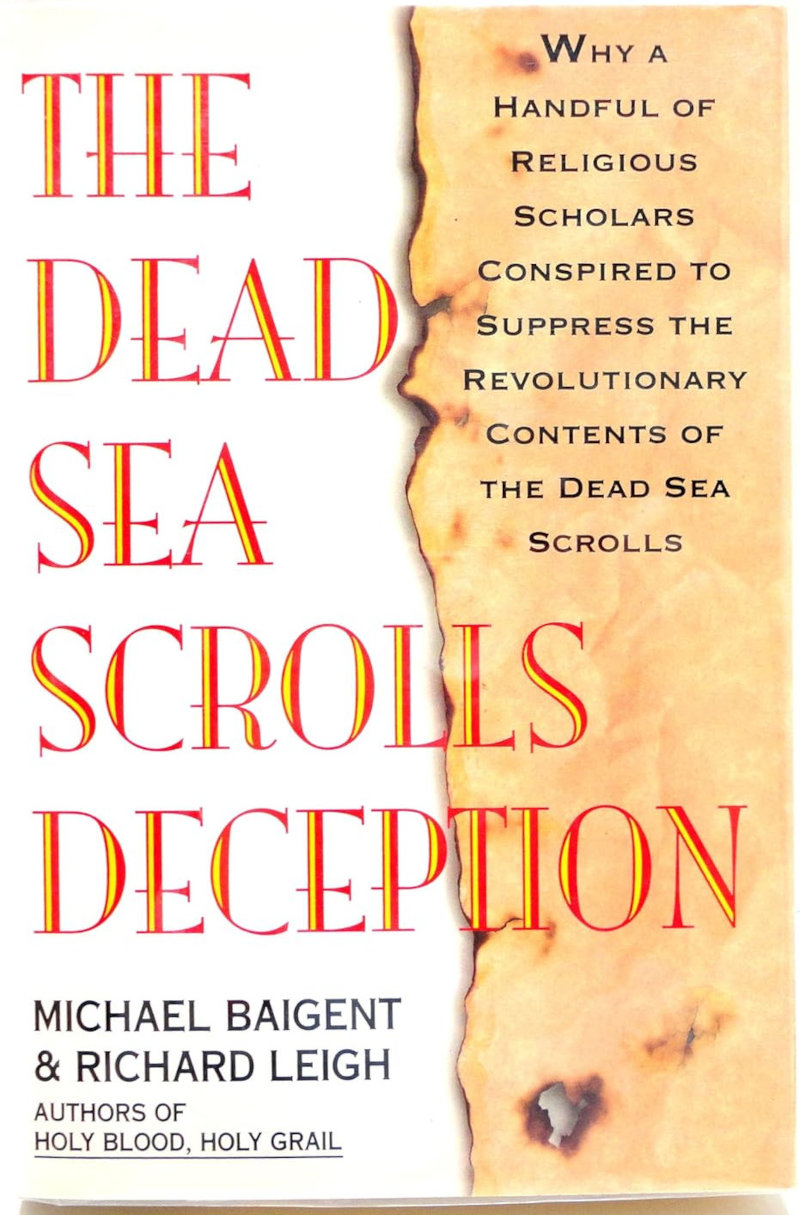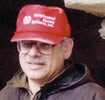Love one another as I love you
| Home | Old Testament | Historical Jesus |
| Early Christian History | Dead Sea Scrolls | Various Books |
THE DEAD SEA SCROLLS
A Passover problem solved by the Dead Sea Scrolls:
The synoptic gospels believe that the last supper took place on the day of Passover, whereas the fourth gospel (whose beloved disciple is said to have been present) puts the supper on the day before.
THE UNAUTHORIZED VERSION by Robin Lane Fox pg.294
of the Festival of Unleavened Bread ... The disciples did as Jesus had told them and prepared the Passover meal. Matthew 26.17-19 Mark 14.12-16 Luke 22.7-13
It was now the day before the Passover Festival. ... Jesus and his disciples were at supper. John 13.1-2
 In Matthew (26:17-19), the Last Supper is depicted as a Passover meal,
and Jesus is crucified the next day. In the fourth gospel (John 13:1 & 18:
28), however, it is said to occur before the Passover. Some scholars
have sought to reconcile the contradiction by acknowledging the last
supper as indeed a Passover feast, but a Passover feast conducted in
accordance with a different calendar. The Qumran community used
precisely such a calendar - a solar calendar, in contrast to the lunar
calendar used by the priesthood of the temple. ... and Jesus, it is
clear, was using the same calendar as that of the Qumran community.
In Matthew (26:17-19), the Last Supper is depicted as a Passover meal,
and Jesus is crucified the next day. In the fourth gospel (John 13:1 & 18:
28), however, it is said to occur before the Passover. Some scholars
have sought to reconcile the contradiction by acknowledging the last
supper as indeed a Passover feast, but a Passover feast conducted in
accordance with a different calendar. The Qumran community used
precisely such a calendar - a solar calendar, in contrast to the lunar
calendar used by the priesthood of the temple. ... and Jesus, it is
clear, was using the same calendar as that of the Qumran community.
THE DEAD SEA SCROLLS DECEPTION by Baigent & Leigh pg.135-136
...This text was sufficient to convince even Rome. According to Cardinal Jean Danielou, writing with a 'Nihil Obstat' from the Vatican: 'Christ must have celebrated the last supper in the eve of Easter according to the Essenian calendar.'
THE DEAD SEA SCROLLS AND PRIMITIVE CHRISTIANITY by Daneilou pg.27
even within writings that are unaware of the Dead Sea scrolls:
One final point. Brown* judges it most likely that Jesus was crucified on Passover Eve, as explicitly in John, rather than on Passover Day as implicitly in the synoptics.
WHO KILLED JESUS by John Dominic Crossan pg.100
( *Raymond Brown, THE DEATH OF THE MESSIAH )
... when Church Fathers or other individuals were confronted with one of the various biblical ambiguities and contradictions, they speculated about its meaning. They attempted to interpret it. Once accepted, the conclusion of their speculation - that is, their interpretation - would become enshrined as dogma. Over the centuries, it then came to be regarded as established fact. Such conclusions are not fact at all.
THE MESSIANIC LEGACY by Baigent, Leigh, & Lincoln pg.16
"... what we have is a picture of what Christianity actually was in Palestine. The reader, however, probably will not be able to recognize it because it will seem virtually the opposite of the Christianity with which he or she is familiar. ... "While the Palestinian one was zealot, nationalistic, engage, xeno-phobic, and apocalyptic; the overseas one was cosmopolitan, anti-nomian, pacifistic - in a word 'Paulinized'."
THE DEAD SEA SCROLLS UNCOVERED by Eisenman and Wise pg.10
 Essenism, Zealotism, Messianic Saduceeism, Nazoraeanism - or perhaps even
"Naziritism" (the wordplay is probably deliberate) and a kind of "Essene"
Zealotism. As we shall show, these are all simply variations on a theme well
developed at Qumran.
Essenism, Zealotism, Messianic Saduceeism, Nazoraeanism - or perhaps even
"Naziritism" (the wordplay is probably deliberate) and a kind of "Essene"
Zealotism. As we shall show, these are all simply variations on a theme well
developed at Qumran.
pg.xiv The DEAD SEA SCROLLS and The First Christians by Robert Eisenman
"Changeing terms with ideological connotations into geographical place names tends to trivialize them. This is certainly the case with confusions relating to whether Jesus came from a place in Galilee called Nazareth (never mentioned in either the works of Josephus or the Old Testament) or whether, like James, he followed a 'Nazirite' life style or was a 'Nazrene' or 'Nazoraean', which have totally different connotations..."
pg.XXVII James the Brother of Jesus by Robert Eisenman
Robert Eisenman is the author of James the Brother of Jesus (1998) and The Dead Sea Scrolls and the First Christians (1996) and co-editor of The Facsimile Edition of the Dead Sea Scrolls (1989) and The Dead Sea Scrolls Uncovered (1992). He is Professor of Middle East Religions and Archaeology and the Director of the Institute for the Study of Judeo-Christian Origins at California State University Long Beach and Visiting Senior Member of Linacre College, Oxford.
He holds a B.A. from Cornell University in Philosophy and Engineering Physics, an M. A. from N. Y. U. in Near Eastern Studies, and a Ph. D. from Columbia University in Middle East Languages and Cultures.. He was a Senior Fellow at the Oxford Centre for Postgraduate Hebrew Studies and an American Endowment for the Humanities Fellow-in-Residence at the Albright Institute of Archaeological Research in Jerusalem, where the Dead Sea Scrolls first came in.
His first book was Islamic Law in Palestine and Israel from E. J. Brill in Leiden, Holland in 1978 and this was followed by two other books from E. J. Brill In Leiden: Maccabees, Zadokites, Christians and Qumran: A New Hypothesis of Qumran Origins ( 1982 ) and James the Just in the Habakkuk Pesher ( 1984 ).
He was the leader of the worldwide campaign from 1987-1992 to break the academic and scholarly monopoly over the Dead Sea Scrolls, freeing them for research by all interested persons regardless of affiliation or credentials. As a consequence of this, he was the Consultant to the Huntington Library on its decision to open its archives and allow free access to the Scrolls. In 2002-3 he was the first to publicly announce that the ‘James Ossuary’, which so suddenly and ‘miraculously’ appeared, was fraudulent; and he did thison the basis of the actual inscription itself and what it said without any ‘scientific’ or ‘pseudo-scientific’ aids on the very same day it was first made public .
His latest book is The New Testament Code: The Cup of the Lord, the Damascus Covenant, and the Blood of Christ, ( Sterling/Barnes and Noble, October, 2006 ).
THE DEAD SEA SCROLLS:
... the evidence for dating the Dead Sea Scrolls within the first two centuries B.C., and for determining that they are a small portion of the library of an ascetic sect, some of whose members hid them in caves at about 67-70 A.D., is decisive. Even by rather rigorous standards, the evidence, particularly of archeology, leaves little to be desired. Indeed, the New Testament in partic- ular is far more vulnerable than the Scrolls to questions of its authenticity. Nowhere is there a relationship of community to scriptures so tangibly attested as in the case of the Qumran sect and the scrolls. ... that this community had scriptures upon which Christian writers drew in composing their own scriptures; that there were practices, including sacraments, which foreshadow Christian practices;
THE MEANING OF THE DEAD SEA SCROLLS by A. Powell Davies pg.42
...we found ourselves confronting a contradiction we had faced before - the contradiction between the Jesus of history and the Christ of faith. ... We also encountered a rigidly maintained 'consensus' of interpretation towards the content and dating of the scrolls ... And we discovered how fiercely the world of orthodox biblical scholarship was prepared to fight to retain its monopoly of available information.
THE DEAD SEA SCROLLS DECEPTION by Baigent & Leigh pg.xii
In the spring of 1986 ... Professor Eisenman ... with the British scholar Philip Davies of the University of Sheffield, ... were told ... by an intermediary on behalf of the 'International Team' (in control of the scrolls) ... in no uncertain terms, 'you will not see the scrolls in your lifetimes.'
THE DEAD SEA SCROLLS UNCOVERED by Eisenman and Wise pg. 3
Of those residing in Jerusalem during the crucial period of excavation, purchase of material, allocation of texts and collation of fragments, ... all but one were in fact, Roman Catholic priests, attached to, and residing at, the Ecole Biblique. ... The Ecole itself officially controlled the two most prominent and prestigious forums for discussion of Qumran material. pg. 100,118
THE DEAD SEA SCROLLS DECEPTION by Baigent & Leigh
"When theological scholars say, as they have recently been saying, that the discovery of the Scrolls has brought them no information that obliges them to revise their view of Christian beginnings or - at least not extensively - it can be FOR THEM the truth. ... they have known for a long time that the traditional view of Christian origins is not supported by history .... they are familiar with New Testament historical problems to which it has never been possible to find historical solutions. Dogmatic solutions are another matter. ...
"scholars know ... of the extensive debt of Christianity to Pagan religion during the first centuries of its development in the Mediterranean area. Theological scholars have known for some time that there were important resemblances between Essenic organization and that of the early Christian churches and have had reason to suspect that the two may have been organically connected." pg.84
THE MEANING OF THE DEAD SEA SCROLLS by A. Powell Davies
[ When I was in seminary, in 1970, It was but barely mentioned that Jesus may have been an Essene or Zealot.]
And another Qumran text, 'The Messianic Rule', adds: 'they shall gather for the common table, to eat and to drink new wine ... let no man extend his hand over the first fruits of bread and wine before the Priest ... thereafter, the Messiah of Israel shall extend his hand over the bread'.
THE DEAD SEA SCROLLS DECEPTION by Baigent & Leigh pg.136
It seems altogether likely, therefore, that the bread represented the Messiahs of Aaron and of Israel in the sacramental meal of the Qumran covenanters ...
THE MEANING OF THE DEAD SEA SCROLLS by A. Powell Davies pg.100-101
The early Christian sacrament [the Last Supper] was the Essenic sacrament with, PERHAPS, some Christian adaptations. We stress the PERHAPS because there is no certainty that the accounts of the Lord's Supper in the New Testament have not been edited to accord with the practice and doctrine of a later time. As we have seen earlier, it is difficult to know when the New Testament is giving us actual history and when it is giving us history that doctrine has elaborated. ... if the Christians did not derive their sacred meal from the Essenes, then the Christians were themselves a sect of the Essenes. ... Further similarities between the Essenic sects and the early Christians were evident in their common view of world events, ...
THE MEANING OF THE DEAD SEA SCROLLS by A. Powell Davies pg.100-101
"While at the [Qumran] community He (Jesus) developed his ability to communicate difficult concepts in the form of parables. Many of these early parables do not appear in the Bible, mainly because they deal with reincarnation." pg. JESUS AND THE ESSENES by Dolores Cannon
Caesar had already been officially instated as a God. In order to compete, Jesus - whom nobody had previously deemed divine - had to be deified as well. In Paul's hands he was. (and Constantine of Constantaople)
HOLY BLOOD, HOLY GRAIL by Baigent, Leigh, & Lincoln pg.362
[in] 'The Community Rule' [scroll] ... Members of the community, 'WALKING IN THE WAY OF PERFECTION' are obliged to adhere zealously to the law 'UNTIL THERE SHALL COME THE PROPHET AND THE MESSIAHS OF ARRON AND ISRAEL'. This reference is usually interpreted as meaning two distinct Messiahs, two equally regal figures... (one from Aaron and one from David)
THE DEAD SEA SCROLLS DECEPTION by Baigent & Leigh pg.141
[the gospel of] Luke also makes it plain that John the Baptist, through his mother, was descended from the priestly dynastic succession of Aaron - which would mean, of course, that Jesus was too. At the same time, Luke stresses Jesus's descent, through his father, from David.... This would seem to explain Luke's assertion in Acts (2:36) that God had made Jesus 'both Lord and Christ'.
THE MESSIANIC LEGACY by Baigent, Leigh, & Lincoln pg.92
If, amidst the generally apocalyptic atmosphere of the time, devout Jews were anxiously awaiting the advent of two Messiahs - one royal from David, one priestly from Aaron - they would have had their eyes fixed on a limited number of families.
(a family that was descended from both David and Aaron)
THE MESSIANIC LEGACY by Baigent, Leigh, & Lincoln pg.93
But who exactly was Thomas? We know that Simon Peter and his brother Andrew, as well as the two sons of Zebedee, were fishermen from Galilee. We learn something of the backgrounds of various other disciples. About Thomas, however, we are told nothing. And the question becomes all the more pertinent because 'Thomas' is not a name at all. Just as 'Peter' is a nickname meaning 'rocklike' or 'Rocky' (Rambo!) for a fisherman named Simon; so Thomas is a sobriquet, the word being simply the Hebrew for 'twin'.
In the King James version of John's gospel ... He is referred to there as 'Thomas Didymus' or 'Thomas called Didymus' In fact however, this only obscures the issue further - because the word didymus also means 'twin' when translated.
THE MESSIANIC LEGACY by Baigent, Leigh, & Lincoln pg.95
"It was indeed his secret twin who was crucified instead." - Naor; pg. 111
So they took instead a man who looked just like Jesus, ...
He then returned three days later, removed the man that looked like him
and let him go on living. - Aurora; pg. 118
Ambassadors Between Worlds by Damiana Sage Miller
If we believe that God is within us, then it makes sense to say that God's kingdom is within:
Luke 17:20-21. SOME PHARISEES ASKED JESUS WHEN THE KINGDOM OF GOD WOULD COME. HIS ANSWER WAS, "THE KINGDOM OF GOD DOES NOT COME IN SUCH A WAY AS TO BE SEEN. NO ONE WILL SAY, `LOOK HERE IT IS!' OR, `THERE IT IS!'; BECAUSE THE KINGDOM OF GOD IS WITHIN YOU."
One person I worked with once, was so devastated by the thought that heaven was not a place that he denied that "the kingdom of heaven", and "the kingdom of God" were the same. Yet, over and over, Mark and Luke use the term "kingdom of God", and Matthew uses "kingdom of heaven" for the exact same thing. Notice:
Matthew 18:3: I assure you that unless you change and become like children, you will never enter the Kingdom of heaven.
Mark 10:15: I assure you that whoever does not receive the Kingdom of God like a child will never enter it.
Luke 18:17: Remember this! Whoever does not receive the Kingdom of God like a child will never enter it.
"One of the most problematic phrases in the Bible is "the kingdom of God". The Aramaic and Hebrew words of Jesus did not imply a territory or domain. Instead, they referred to a power that is coming to be. pg. 61 "For centuries, Jewish prophets compared the realm of God to the famed cedars of Lebanon, which were used to build the temple of Solomon in Jerusalem. So Jesus shocks his audience by likening it to a tiny mustard seed, which grew into a scraggly plant that most farmers considered a weed. pg. 95
THE LOST GOSPEL Q, the original saying of Jesus - Marcus Borg, consulting editor
That all 3 of them wrote YEARS after the events, and yet report so many of the same events, it is easy enough to understand the scholars, who all say that either Mark, the earliest, was a source that the other 2 were using to write their gospels from, &/or there is another source,"Q", lost to us, from which (all 3?) were getting their common information. (called "Q" for German word quelle = "source" in English and possibly is The Gospel of Thomas; See the introduction to The Gospel of Thomas from The Nag Hammadi Library collection.)
In any case, they have each, almost totally, chosen to word things so much their own way that they are obviously not quoting Jesus word for word. One might feel that since they all were so willing to re-word everything their own way, they must have known that their source was not word-for-word accurate in the first place.
On Nov. 18th, 1965 the Roman Catholic church declared in its revised constitution (Vatican II) that God himself "authored" the Bible ... in all its parts and in its entirety.
